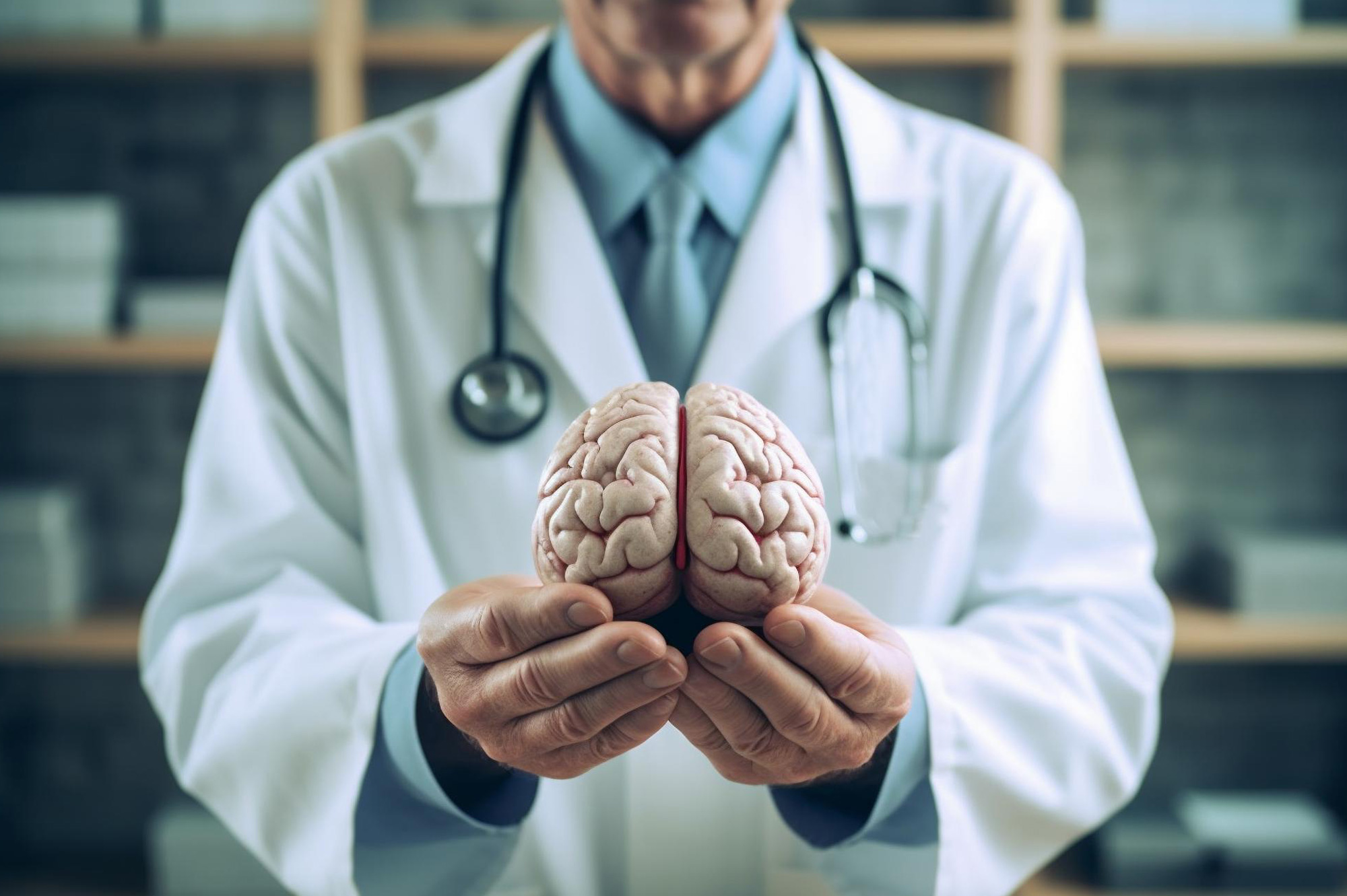Brain health is one of our biggest concerns for the aging population. As we age, our cells slow down and stop working. When this happens, we start to see changes in how our body and brains function. We may experience slower movements and stiffness, drier skin, and changes in our cognition, or how we’re able to think.
When it comes to the brain specifically, neurodegeneration is a medical term that is often used. This refers to the degeneration of the nervous system, particularly the neurons or brain cells. This can happen in response to a specific condition like multiple sclerosis, amyotrophic lateral sclerosis (ALS), or motor neuron disease, but also happens as we age.
What is neurodegeneration
While neurodegeneration from aging is a natural process, it can lead to more serious conditions including dementia, Alzheimer’s disease (AD), and Parkinson’s disease (PD). The common thread of these diseases is abnormal folding of certain proteins, and excess oxidative stress and inflammation. Neurodegeneration also affects blood flow and communication between certain brain regions.
The loss of brain cells can create physical shrinkage in the brain. Around middle age, our brains start to shrink, and the rate of shrinking increases after we turn 60 years old. Certain areas of the brain are more susceptible to shrinking than others and these are usually those related to memory, learning and other complex mental skills. This is why forgetfulness, and difficulty learning new things are the first symptoms we notice.1
Current treatments
Treatments to restore or prevent cognitive function from aging is primarily in the realm of medications. While some lifestyle modifications like dietary changes and increasing exercise are helpful for prevention, bigger interventions are usually needed once the aging process sets in.
Medications for neurodegenerative diseases focus on different brain targets. For example, acetylcholine is a neurotransmitter linked to key functions like learning, memory and cognition. Cholinesterase inhibitors are medications that interfere with the breakdown of acetylcholine decreasing the effect of neuron loss and boosting cognitive functions.2
Other beneficial medications act on NMDA receptors, the dopamine pathway, and antidiabetic agents. Each of these has a unique role in brain function and neurodegeneration including links of type II diabetes and increased risk for dementia.
Despite the drive for finding medications that prevent or help manage AD and other age related conditions, no cognitively enhancing agents have been found. One of the biggest challenges is the complexity of neurodegeneration and the uniqueness of each patient. Medications also usually come with a multitude of side effects that can further interfere with daily life.
A new idea that has been explored is using stem cells to help prevent and even reverse brain aging. These cells provide a unique opportunity as they can transform into any cell, are anti-inflammatory and safe to use for the immune system. There are many different kinds of stem cells and mesenchymal stem cells (MSCs) appear to be the most beneficial when it comes to aging cells.
What are UC-MSCs
Stem cells are young cells that haven’t yet become a specific type of cell. This means they have the ability to become any cell that they attach too. Their primary function is to replace cells that are dying and to repair damaged tissues.3 There are different types of stem cells that come from different areas of the body and of these, MSCs appear to be the most beneficial for their special capabilities. These cells can transform into different cells including bone, cartilage, and fat cells, and have special self-renewing properties, allowing them to maintain their populations over time. This is crucial for when applying them to clinical and therapeutic applications.4
MSCs are primarily found in bone marrow, umbilical cord blood, and adipose tissue. However, those that come from umbilical cord MSCs (UC-MSCs) seem to have superior benefits. They can multiply faster than other types of MSCs and can differentiate into the three primary cell layers, playing a significant role in tissue repair.5
How MSC’s can support brain aging
Research has found many different applications for MSC treatment for the aging brain.
After AD, vascular dementia (VD) is the second most common type of dementia. The progressive decline of memory and cognitive function has a significant impact on patients’ daily living. The extracellular vesicles are important for cell-to-cell communication. They can be found in MSCs (MCS-EV) and can have neuroprotective effects that can reduce damage in VD. Restoring synaptic function, decreasing inflammation, boosting antioxidants, and promoting new neuron growth are some of the ways MSC-EVs can prevent neurodegeneration and help restore function.6
Stem cells have demonstrated the potential of MSCs for preventing the progression of PD in severe stages. Because of their ability to repair damaged cells, MSCs have the potential to replace lost brain cells and to restore dopamine which is crucial for the motor symptoms in PD. It works by transplanting cells into the brain where they can move to parts of the brain where cells are damaged to restore dopamine and neuron function.7
A mouse study found that exosomes from MSCs, small sac-like structures formed inside a cell that has proteins, have significant protective effects against oxidative stress in different areas of the brain, and reduces cell senescence, when cells stop dividing but don’t die. The level cell death was also reduced as well as indications of increased activity of the hippocampus, the memory and learning center of the brain suggesting a change in the aging process.8
The takeaway
As our aging population continues to increase, the need to find new and innovative therapies to protect cognitive function is becoming more important. MSCs are proving to be an exciting new treatment with their ability to become different cell types to replace and repair old cells. Their ability to decrease inflammation, enhance neurogenesis, and repair vascular and neuronal damage makes them a valuable tool in the fight against the deteriorating effects of the aging brain. As research progresses, the therapeutic use of MSCs could revolutionize the way we treat age-related brain conditions, offering hope for improved cognitive function and quality of life in our later years.
Resources
- How the Aging Brain Affects Thinking. (2023, June 27). National Institute on Aging. https://www.nia.nih.gov/health/brain-health/how-aging-brain-affects-thinking
- Chen, L., Jiao, J., & Zhang, Y. (2022). Therapeutic approaches for improving cognitive function in the aging brain. Frontiers in neuroscience, 16, 1060556. https://doi.org/10.3389/fnins.2022.1060556
- Jones D, Wagers A. 2008. No place like home: anatomy and function of the stem cell niche. Nat Rev Mol Cell Biol 9, 11–21. https://www.nature.com/articles/nrm2319
- Stem Cell Basics | STEM Cell Information. National Institutes of Health. https://stemcells.nih.gov/info/basics/stc-basics
- Stem Cells: Types, What They Are & What They Do. Cleveland Clinic. https://my.clevelandclinic.org/health/body/24892-stem-cells
- Liu, Z., Cheng, L., Zhang, L., Shen, C., Wei, S., Wang, L., … & Zhang, X. (2024). Emerging role of mesenchymal stem cells-derived extracellular vesicles in vascular dementia. Frontiers in Aging Neuroscience, 16, 1329357. https://doi.org/10.3389/fnagi.2024.1329357
- Nguyen, H., Zarriello, S., Coats, A., Nelson, C., Kingsbury, C., Gorsky, A., Rajani, M., Neal, E. G., & Borlongan, C. V. (2019). Stem cell therapy for neurological disorders: A focus on aging. Neurobiology of disease, 126, 85–104. https://doi.org/10.1016/j.nbd.2018.09.011
- Zhang, X., Liu, T., Hou, X. et al. Exosomes secreted by mesenchymal stem cells delay brain aging by upregulating SIRT1 expression. Sci Rep 13, 13213 (2023). https://doi.org/10.1038/s41598-023-40543-5




